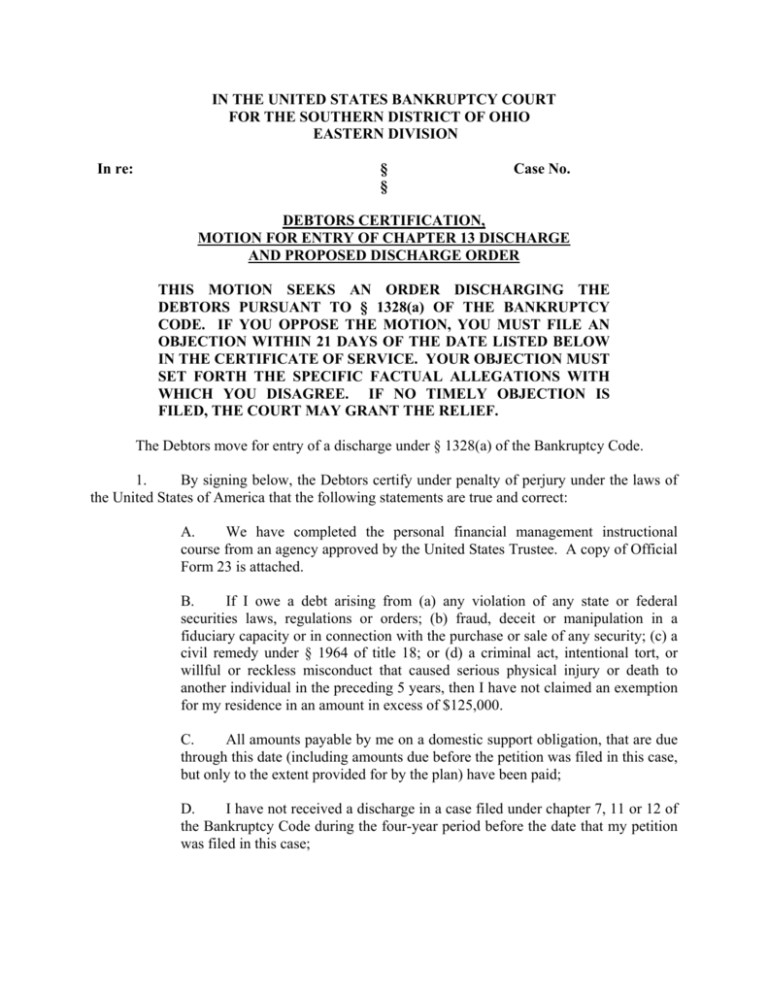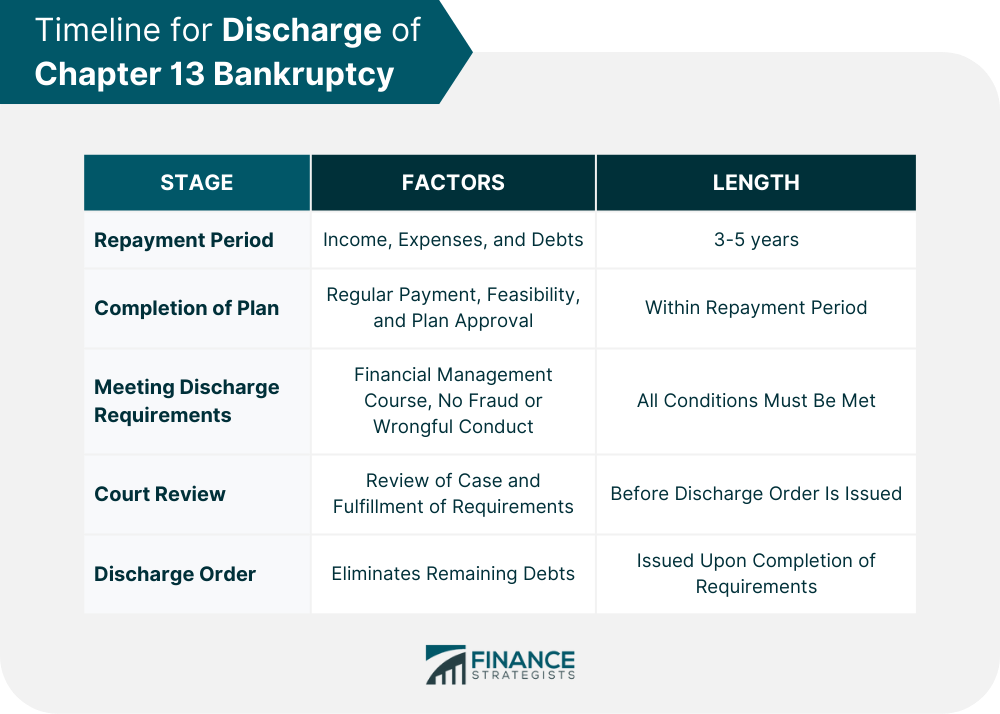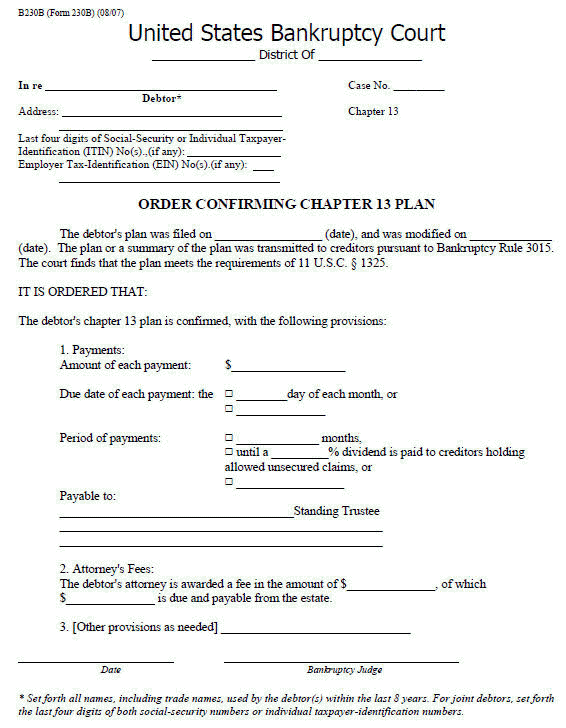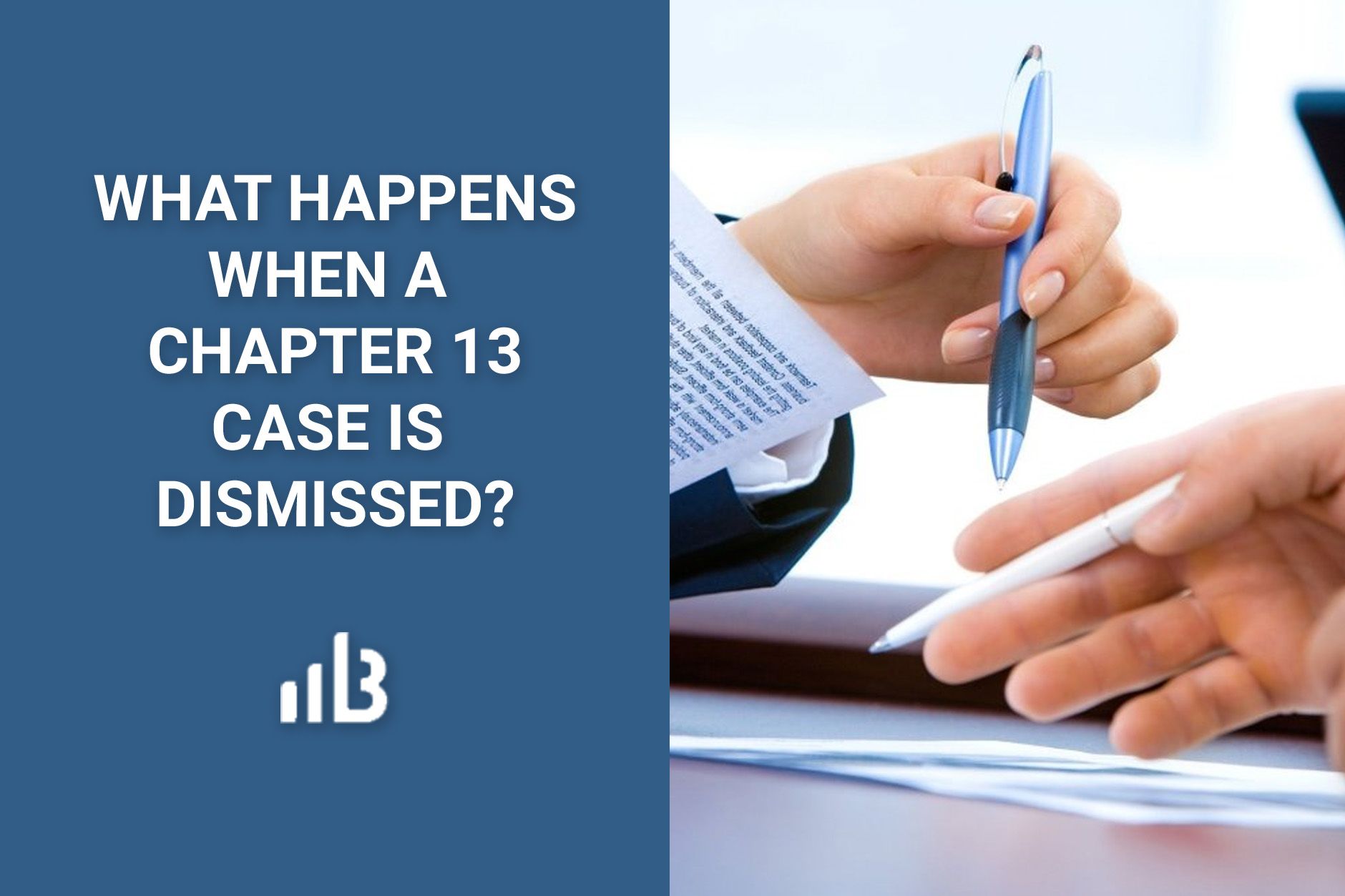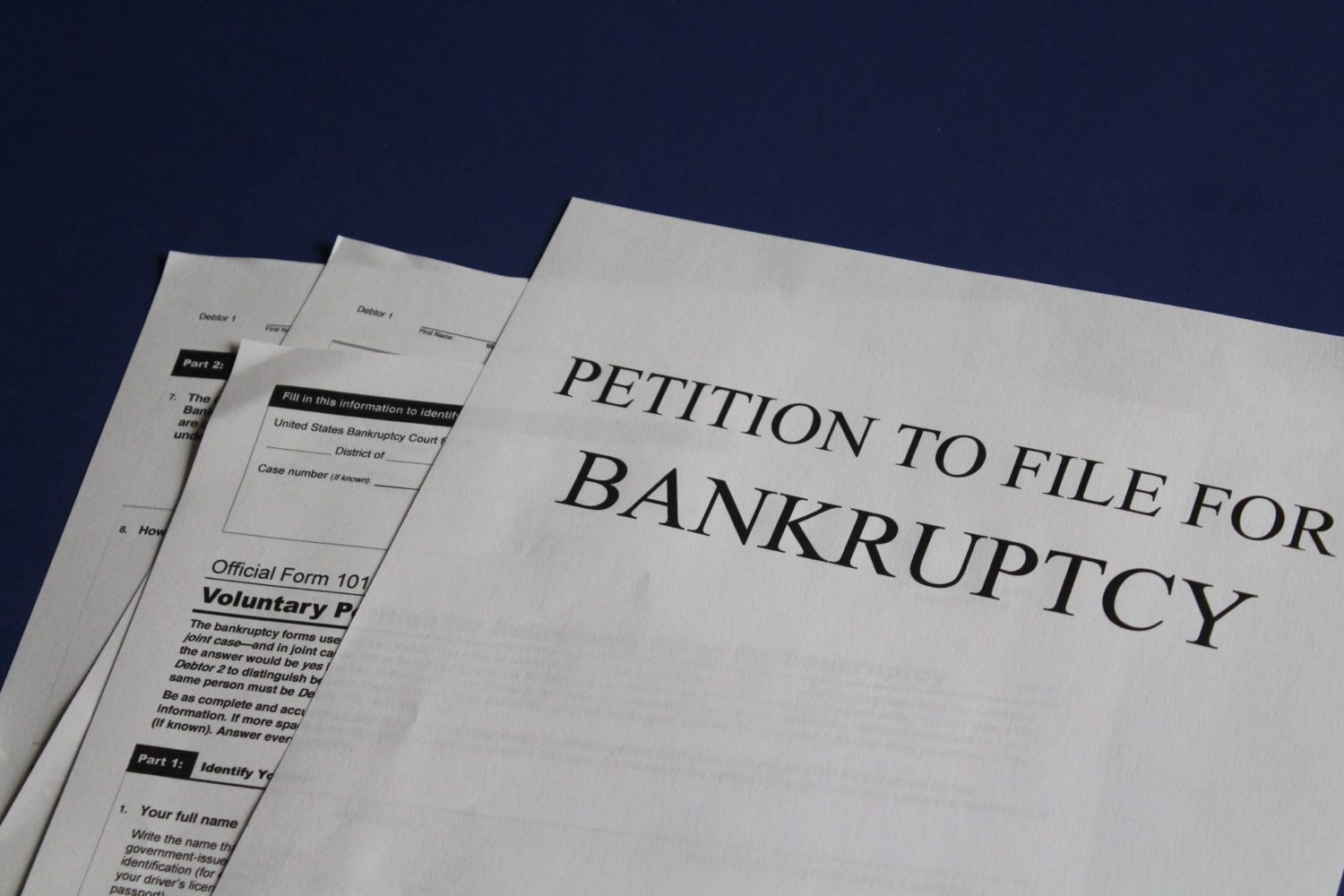Discharge Of Chapter 13 Trustee And Order Closing Case - One is receiving a discharge, and the second is the closing of the case. In most cases, fraud in chapter 13 bankruptcy involves lying on the bankruptcy petition, hiding assets, or failing to disclose all income. This is issued about 4 weeks after the affidavit of. Toward the end of bankruptcy are two separate events: The chapter 13 trustee is supposed to make a final report and account, and after the final report is filed, the court will enter an order. Debtors who complete their chapter 13 plan must file additional documents to be eligible to receive a chapter 13 discharge. The order you received closes your case, which could have happened even if you were denied your discharge. Next the court will issue the order of discharge.
One is receiving a discharge, and the second is the closing of the case. In most cases, fraud in chapter 13 bankruptcy involves lying on the bankruptcy petition, hiding assets, or failing to disclose all income. Debtors who complete their chapter 13 plan must file additional documents to be eligible to receive a chapter 13 discharge. This is issued about 4 weeks after the affidavit of. The chapter 13 trustee is supposed to make a final report and account, and after the final report is filed, the court will enter an order. The order you received closes your case, which could have happened even if you were denied your discharge. Next the court will issue the order of discharge. Toward the end of bankruptcy are two separate events:
This is issued about 4 weeks after the affidavit of. Toward the end of bankruptcy are two separate events: The chapter 13 trustee is supposed to make a final report and account, and after the final report is filed, the court will enter an order. In most cases, fraud in chapter 13 bankruptcy involves lying on the bankruptcy petition, hiding assets, or failing to disclose all income. Next the court will issue the order of discharge. One is receiving a discharge, and the second is the closing of the case. Debtors who complete their chapter 13 plan must file additional documents to be eligible to receive a chapter 13 discharge. The order you received closes your case, which could have happened even if you were denied your discharge.
The Chapter 13 Discharge Chapter 13 Bankruptcy Attorney
One is receiving a discharge, and the second is the closing of the case. The order you received closes your case, which could have happened even if you were denied your discharge. This is issued about 4 weeks after the affidavit of. Next the court will issue the order of discharge. In most cases, fraud in chapter 13 bankruptcy involves.
IN THE UNITED STATES BANKRUPTCY COURT FOR THE
In most cases, fraud in chapter 13 bankruptcy involves lying on the bankruptcy petition, hiding assets, or failing to disclose all income. One is receiving a discharge, and the second is the closing of the case. The chapter 13 trustee is supposed to make a final report and account, and after the final report is filed, the court will enter.
When Does Chapter 13 Bankruptcy Get Discharged?
One is receiving a discharge, and the second is the closing of the case. Next the court will issue the order of discharge. Debtors who complete their chapter 13 plan must file additional documents to be eligible to receive a chapter 13 discharge. The order you received closes your case, which could have happened even if you were denied your.
Order to Dismiss Chapter 13 Bankruptcy Case Debtor Bankruptcy
In most cases, fraud in chapter 13 bankruptcy involves lying on the bankruptcy petition, hiding assets, or failing to disclose all income. One is receiving a discharge, and the second is the closing of the case. The order you received closes your case, which could have happened even if you were denied your discharge. The chapter 13 trustee is supposed.
Miami Bankruptcy Attorney Blog Chapter 13 Bankruptcy Discharge
In most cases, fraud in chapter 13 bankruptcy involves lying on the bankruptcy petition, hiding assets, or failing to disclose all income. Next the court will issue the order of discharge. The chapter 13 trustee is supposed to make a final report and account, and after the final report is filed, the court will enter an order. Toward the end.
The Chapter 13 Discharge Chapter 13 Bankruptcy Attorney
The chapter 13 trustee is supposed to make a final report and account, and after the final report is filed, the court will enter an order. Toward the end of bankruptcy are two separate events: One is receiving a discharge, and the second is the closing of the case. The order you received closes your case, which could have happened.
37+ Chapter 13 Bankruptcy Discharge Process LeslieRaefe
The chapter 13 trustee is supposed to make a final report and account, and after the final report is filed, the court will enter an order. Next the court will issue the order of discharge. This is issued about 4 weeks after the affidavit of. The order you received closes your case, which could have happened even if you were.
What Happens When a Chapter 13 Case Is Dismissed?
Next the court will issue the order of discharge. This is issued about 4 weeks after the affidavit of. Toward the end of bankruptcy are two separate events: The order you received closes your case, which could have happened even if you were denied your discharge. One is receiving a discharge, and the second is the closing of the case.
Know About Chapter 13 Hardship Discharge in Bankruptcy • Video Guide
One is receiving a discharge, and the second is the closing of the case. Debtors who complete their chapter 13 plan must file additional documents to be eligible to receive a chapter 13 discharge. In most cases, fraud in chapter 13 bankruptcy involves lying on the bankruptcy petition, hiding assets, or failing to disclose all income. This is issued about.
Chapter 13 Discharge Inforuptcy
One is receiving a discharge, and the second is the closing of the case. Debtors who complete their chapter 13 plan must file additional documents to be eligible to receive a chapter 13 discharge. Next the court will issue the order of discharge. In most cases, fraud in chapter 13 bankruptcy involves lying on the bankruptcy petition, hiding assets, or.
This Is Issued About 4 Weeks After The Affidavit Of.
One is receiving a discharge, and the second is the closing of the case. Next the court will issue the order of discharge. The chapter 13 trustee is supposed to make a final report and account, and after the final report is filed, the court will enter an order. The order you received closes your case, which could have happened even if you were denied your discharge.
Debtors Who Complete Their Chapter 13 Plan Must File Additional Documents To Be Eligible To Receive A Chapter 13 Discharge.
Toward the end of bankruptcy are two separate events: In most cases, fraud in chapter 13 bankruptcy involves lying on the bankruptcy petition, hiding assets, or failing to disclose all income.

